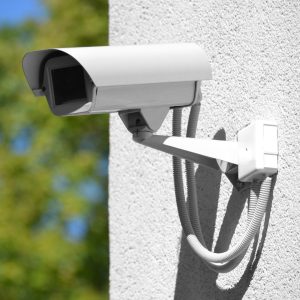In today’s increasingly technology-driven world, CCTV systems have become an invaluable tool for farmers. Installing CCTV on a farm can provide a multitude of benefits that enhance security, efficiency, and overall farm management. Here are some of the key advantages:

1. Enhanced Security
Deterrence of Theft and Vandalism: Farms are often targeted by thieves due to their valuable equipment, livestock, and crops. CCTV systems act as a strong deterrent, significantly reducing the risk of theft and vandalism. Visible cameras can discourage potential criminals from attempting to access the property.
24/7 Surveillance: With CCTV, farmers can monitor their property around the clock. This constant surveillance ensures that any suspicious activity is detected immediately, allowing for quick response and intervention.
Evidence Collection: In the unfortunate event of a crime, CCTV footage provides crucial evidence that can be used to identify perpetrators and support law enforcement investigations. This increases the likelihood of recovering stolen property and prosecuting offenders.
2. Livestock Monitoring
Health and Behavior Monitoring: CCTV systems allow farmers to remotely monitor the health and behavior of their livestock. This is particularly useful during calving, lambing, or farrowing seasons, where close observation is necessary. Cameras can help detect signs of distress or illness early, ensuring timely intervention and care.
Protection from Predators: In rural areas, livestock can be vulnerable to attacks from predators. CCTV systems enable farmers to keep an eye on pastures and pens, providing an additional layer of protection for their animals.
3. Improved Farm Management
Remote Monitoring: Modern CCTV systems offer remote access via smartphones, tablets, or computers. Farmers can check on their property from anywhere, providing peace of mind and the ability to manage their farm even when they are away.
Operational Efficiency: By monitoring various aspects of farm operations, such as machinery use and employee activity, CCTV can help identify inefficiencies and areas for improvement. This leads to better resource management and increased productivity.
4. Safety and Compliance
Employee Safety: Ensuring the safety of farm workers is a top priority. CCTV systems can help monitor adherence to safety protocols and procedures, reducing the risk of accidents and injuries. In the event of an incident, footage can be reviewed to understand what went wrong and how to prevent future occurrences.
Regulatory Compliance: Farms are subject to various regulations and standards. CCTV systems assist in maintaining compliance by providing a documented record of farm activities. This is particularly useful for organic farming certification, animal welfare standards, and other regulatory requirements.
5. Environmental Monitoring
Weather and Crop Conditions: CCTV cameras can be strategically placed to monitor weather conditions and crop growth. This information helps farmers make informed decisions about irrigation, fertilization, and pest control, ultimately leading to better crop yields and resource management.
Flood and Fire Detection: Early detection of environmental hazards like floods or fires can save valuable time and resources. CCTV systems can alert farmers to these dangers, allowing for prompt action to protect crops, livestock, and property.
